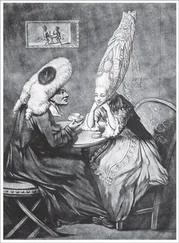Bill Bryson - Notes from a small Island
Здесь есть возможность читать онлайн «Bill Bryson - Notes from a small Island» весь текст электронной книги совершенно бесплатно (целиком полную версию без сокращений). В некоторых случаях можно слушать аудио, скачать через торрент в формате fb2 и присутствует краткое содержание. Жанр: Современная проза, на английском языке. Описание произведения, (предисловие) а так же отзывы посетителей доступны на портале библиотеки ЛибКат.
- Название:Notes from a small Island
- Автор:
- Жанр:
- Год:неизвестен
- ISBN:нет данных
- Рейтинг книги:4 / 5. Голосов: 2
-
Избранное:Добавить в избранное
- Отзывы:
-
Ваша оценка:
- 80
- 1
- 2
- 3
- 4
- 5
Notes from a small Island: краткое содержание, описание и аннотация
Предлагаем к чтению аннотацию, описание, краткое содержание или предисловие (зависит от того, что написал сам автор книги «Notes from a small Island»). Если вы не нашли необходимую информацию о книге — напишите в комментариях, мы постараемся отыскать её.
Notes from a small Island — читать онлайн бесплатно полную книгу (весь текст) целиком
Ниже представлен текст книги, разбитый по страницам. Система сохранения места последней прочитанной страницы, позволяет с удобством читать онлайн бесплатно книгу «Notes from a small Island», без необходимости каждый раз заново искать на чём Вы остановились. Поставьте закладку, и сможете в любой момент перейти на страницу, на которой закончили чтение.
Интервал:
Закладка:
Liverpool became the third richest city in the empire. Only London and Glasgow had more millionaires. By 1880 it was generating more tax revenue than Birmingham, Bristol, Leeds and Sheffield together even though collectively they had twice the population. Cunard and White Star Lines had their headquarters in Liverpool, and there were countless other lines, now mostly forgotten Blue Funnel, Bank Line, Coast Line, Pacific Steam Line, McAndrews Lines, Elder Dempster, Booth. There were more lines operating out of Liverpool then than there are ships today, or so at least it can seem when there is nothing much along the waterfront but the ghostly warble of Gerry Marsden's voice.
The decline happened in a single generation. In 1966, Liverpool was still the second busiest port in Britain, after London. By 1985, it had fallen so low that it was smaller and quieter than even Tees and Hartlepool, Grimsby and Immingham. But in its heyday it was something special. Maritime commerce brought Liverpool not just wealth and employment, but an air of cosmopolitanism that few cities in the world could rival, and it still has that sense about it. In Liverpool, you still feel like you are some place.
I walked from the ferry to the Albert Dock. There were plans at one time to drain it and turn it into a car park it seems a miracle sometimes that there is anything at all left in this poor, stumbling country but now, of course, they have been scrubbed up and gentrified^ the old warehouses turned into offices, flats and restaurants for the sort of people who carry telephones in their briefcases. It also incorporates an outpost of the Tate Gallery and the Merseyside Maritime Museum.
I love the Merseyside Maritime Museum, not merely because it is well done but because it gives such a potent sense of what Liverpool was like when it was a great port indeed, when the world was full of a productive busyness and majesty of enterprise that it seems utterly to have lost now. How I'd love to have lived in an age when you could walk to a waterfront and see mighty ships loading and unloading great squares of cotton fibre and heavy brown bags of coffee and spices, and when every sailing involved hundreds of people sailors and dockers and throngs of excited passengers. Today, you go to a waterfront and all you find is an endless expanse of battered containers and one guy in an elevated cabin shunting them about.
Once there was infinite romance in the sea, and the Merseyside Maritime Museum captures every bit of it. I was particularly taken with an upstairs room full of outsized ships' models the sort that must once have decorated executive boardrooms. Gosh, they were wonderful. Even as models they were wonderful. All the great Liverpool ships were here the Titanic, the Imperator, the RMS Majestic (which began life as the Bismarck and was seized as war reparations) and the unutterably lovely TSS Vauban, with its broad decks of polished maple and its jaunty funnels. According to its label, it was owned by the Liverpool, Brazil and River Plate Steam Navigation Company Limited. Just reading those words, I was seized with a dull ache at the thought that never again will we see such a beautiful thing. J.B. Priestley called them the greatest constructions of the modern world, our equivalent of cathedrals, and he was absolutely right. I was appalled to think that never in my life would I have an opportunity to stride down a gangplank in a panama hat and a white suit and go looking for a bar with a revolving ceiling fan. How crushingly unfair life can sometimes be.
I spent two hours wandering through the museum, looking with care at all the displays. I would happily have stayed longer, but I had to check out of the hotel, so I regretfully departed and walked back through central Liverpool's fine Victorian streets to the Adelphi, where I grabbed my things and checked out.I had a slight hankering to go to Port Sunlight, the model community built in 1888 by William Lever to house his soap workers, as I was interested to see how it compared with Saltaire. So I went to Liverpool Central and caught a train. At Rock Ferry we were informed that because of engineering works we would have to complete the journey by bus. This was OK by me because I was in no hurry and you can always see more from a bus. We rode along the Wirral peninsula for some time before the driver announced the stop for Port Sunlight. I was the only person to get off, and the most striking thing about it was that this was patently not Port Sunlight. I tapped on the front doors and waited for them to gasp open.
'Excuse me,' I said, 'but this doesn't look like Port Sunlight.'
'That's because it's Bebington,' he said. 'It's as close as I can get to Port Sunlight because of a low bridge.'
Oh.
'So where exactly is Port Sunlight then?' I asked but it was to a cloud of blue smoke. I hooked my rucksack over a shoulder and set off along a road that I hoped might be the right one and no doubt would have been had I taken another. I walked for some distance, but the road seemed to go nowhere, or at least nowhere that looked Port Sunlightish. After a time an old man in a flat cap came doddering along and I asked him if he could point me the way to Port Sunlight.
'Port Sunlight!' he replied in the bellow of someone who thinks the world is going deaf with him, and with a hint that that was a bloody daft place to want to go. 'You want a boosel'
'A bus?' I said in surprise. 'How far am I then?'
'I say you want a boosel' he repeated, but more vehemently.
'I understand that. But which way is it exactly?'
He jabbed me with a bony finger in a tender spot just below the shoulder. It hurt. 'It's a boose you're wanting!'
'1 understand that.' You tediousdeaf old fart. I raised my voice to match his and bellowed near his ear: 'I need to know which way to go!'
He looked at me as if I were unsustainably stupid. 'A bloody boose! You want a bloody boose!' And then he shuffled off, working his jaw wordlessly.
'Thank you. Die soon,' I called after him, rubbing my shoulder.
I returned to Bebington where I sought directions in a shop, which I should have done in the first place, of course. Port Sunlight,
it turned out, was just down the road, under a railway bridge and over a junction or perhaps it was the other way round. I don't know because it was now pissing down with rain and I tucked my head so low into my shoulders that I didn't see much of anything.
I walked for perhaps half a mile, but it was worth every sodden step. Port Sunlight was lovely, a proper little garden community, and much cheerier in aspect than the huddled stone cottages of Saltaire. This had open green spaces and a pub and pretty little houses half hidden behind drifts of foliage. There wasn't a soul about and nothing seemed to be open neither the shops nor the pub nor the heritage centre nor the Lady Lever Art Gallery, all of which was a bit of a pisser but I made the best of things by having a long slog around the rainy streets. I was a bit surprised to see a factory still there, still churning out soap as far as I could tell, and then I realized that I had exhausted all that Port Sunlight had to offer on a rainy Saturday out of season. So I trudged back to the busstop where I had so recently alighted and waited an hour and a quarter in a driving rain for a bus onward to Hooton, which was even less fun than it sounds.
Hooton offered the world not only a mildly ridiculous name, but the dumpiest British Rail station I ever hope to sneeze in. The shacklike platform waitingrooms were dripping wet, which didn't matter a great deal as I was soaked already. With six others, I waited a small eternity for a train to Chester, where I changed to another for Llandudno.
The Llandudno train was gratifyingly empty, so I took a seat at a table for four, and contented myself with the thought that I would soon be in a nice hotel or guesthouse where I could have a hot bath followed by a generously apportioned dinner. I spent a little time watching the scenery, then pulled out my copy of Kingdom by the Sea to see if Paul Theroux had said anything about the vicinity that I might steal or modify to my own purposes. As always, I was amazed to find that as he rattled along these very tracks he was immersed in a lively conversation with his fellow passengers. How does he do it? Quite apart from the consideration that my carriage was nearly empty, I don't know how you strike up conversations with strangers in Britain. In America, of course, it's easy. You just offer a hand and say, 'My name's Bryson. How much money did you make last year?' and the conversation never looks back from there.
Читать дальшеИнтервал:
Закладка:
Похожие книги на «Notes from a small Island»
Представляем Вашему вниманию похожие книги на «Notes from a small Island» списком для выбора. Мы отобрали схожую по названию и смыслу литературу в надежде предоставить читателям больше вариантов отыскать новые, интересные, ещё непрочитанные произведения.
Обсуждение, отзывы о книге «Notes from a small Island» и просто собственные мнения читателей. Оставьте ваши комментарии, напишите, что Вы думаете о произведении, его смысле или главных героях. Укажите что конкретно понравилось, а что нет, и почему Вы так считаете.












